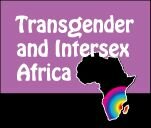Press Release for Intersex Awareness
For Immediate Release
07 November 2014
The 26th of October 2014 was International Intersex Awareness Day, a day that is commemorated annually; as a result, the months of October and November are used to create greater visibility and awareness around intersex issues, challenges and experiences. On the 8th of November 2014, Transgender and Intersex Africa (TIA) will host a public event at Constitutional Hill, the current home of the South African Constitutional Court. The purpose of the event is to raise awareness on intersex issues in South Africa and sensitise the public on the realities and lived experiences of intersex people.
The Promotion of Equality and Prevention of Unfair Discrimination Act of 2000, states that no person should be unfairly discriminated on the grounds of sex, which includes intersex. The Act also goes on to say that no person may unfairly discriminate against any other person on the ground of gender, one of the forms of discrimination being Female Genital Mutilation (FGM). It is clear that South Africa has taken a step in the right direction by including intersex within anti-discrimination policy and by speaking out against Female Genital Mutilation. Even though legislation is in place to protect intersex people, the protection remains only on paper, intersex people continue to face multi-faceted forms of discrimination and hate. The PEPUDA act should be followed by regulations and guidelines on how intersex people are going to be protected by the state; it is no use to have progressive legislation but no progressive and realistic implementation of the law.
The State has taken a great step by speaking out against Female Genital Mutilation (FGM) but it is discouraging that the state has not yet spoken out against Intersex Genital Mutilation (IGM). Intersex people, especially children continue to be the subjects of unnecessary, irreversible and non-consensual surgical procedures form the medical sector. IGM is often ignored by policy makers because it often takes place within hospitals, with doctors and parents consenting to it. Regardless of the fact that this form genital mutilation takes place within academic Western medical settings, it does not excuse the fact that it is a human rights violation; it does not allow intersex persons to have ownership over their bodies, to make decisions that are respectful of their body, autonomy and maintain bodily integrity. TIA is not against necessary medical intervention on intersex children in instances when the immediate health of the child is at risk, what is still needed in South Africa are clear and comprehensive guidelines and policies on intersex people’s health and rights so that they can make decisions that affect their health and lives without force or coercion.
We recognise the fact that some doctors are starting to advocate for non-surgical procedures when dealing with intersex children and they realise that early and unnecessary surgical intervention can have fatal consequences on the physical and psychological health of the child. We urge the health and medical sector to invest in providing accurate, human-rights based and respectful information to the parents of intersex children, as parents often opt for surgery because of the lack of knowledge, support and positive information that does not pathologize intersex and does not promote it as a negative condition that needs to be fixed. We need to ensure that the personal, free and fully informed consent of the intersex individuals are a compulsory requirement in all medical practices and protocols.
Transgender and intersex Africa urges other civil society organisations to take on board intersex rights, in their human rights work. We also urge regional human rights institutions to address the human rights of intersex people, and most importantly we urge government to affirm the rights of intersex people.
We realize that there has been a significant growth of intersex work on the African continent, we therefore urge more intersex people to be visible and to be more involved within the intersex movement.
“It is encouraging to see that intersex human rights are becoming part of the global human rights conversation. We need to keep the momentum going by involving more intersex people within this conversation; we need to become more visible, change is not going to happen if society does not know that we exist. The South African government should also take up the responsibility to ensure that all its citizens are protected, including intersex citizens, by ensuring that we put an end to mutilating and normalizing practices such as genital surgeries and unnecessary hormonal treatment on intersex children, the state should ensure that intersex people’s civil, political and human rights are affirmed” says Nthabiseng Mokoena from Transgender and Intersex Africa.
“It is time that our medical professionals acknowledge that intersex traits are not abnormalities that need to be fixed. The intersex community forms part of human diversity. Intersex people continue to be a marginalized group and the most vulnerable because society is not prepared to move from social constructions and norms that are not inclusive of gender and sex diversity. Not everyone will fit the stereotypical gender binary. It is time that we all start celebrating diversity in all its forms “says Tebogo Nkoana from Transgender and Intersex Africa.
For more information contact:
Tshepang Magendisa
Admin and Communications Officer
Transgender and Intersex Africa
